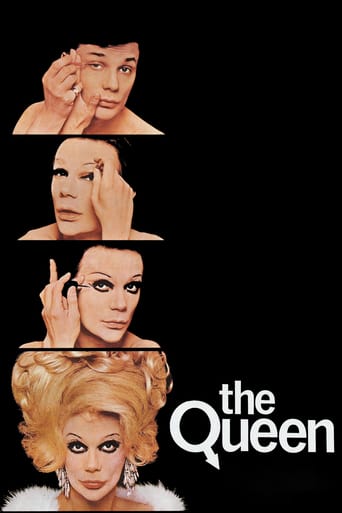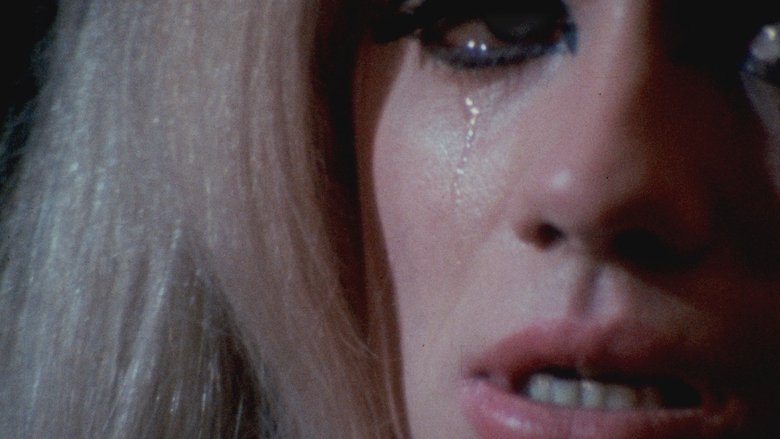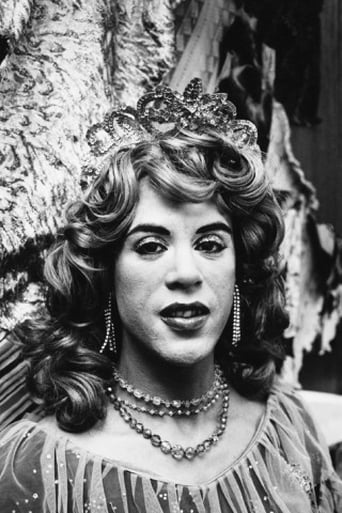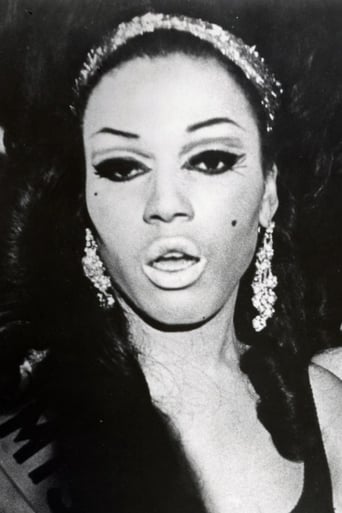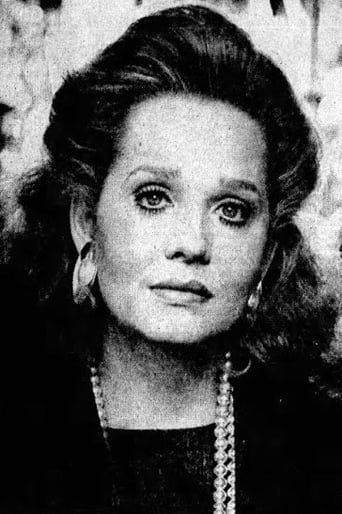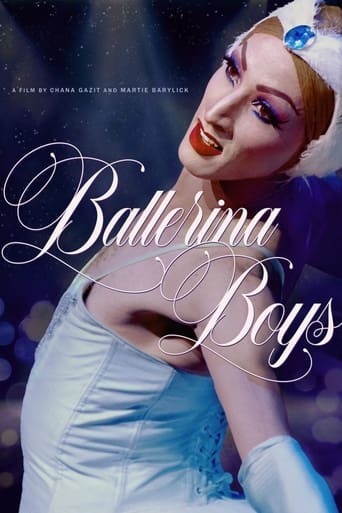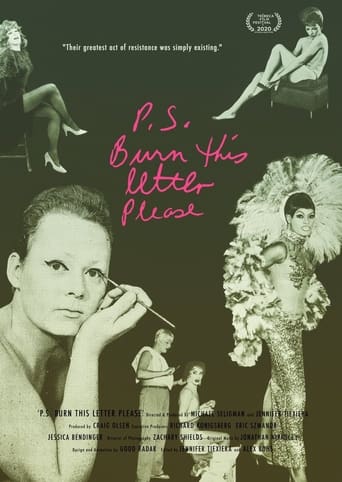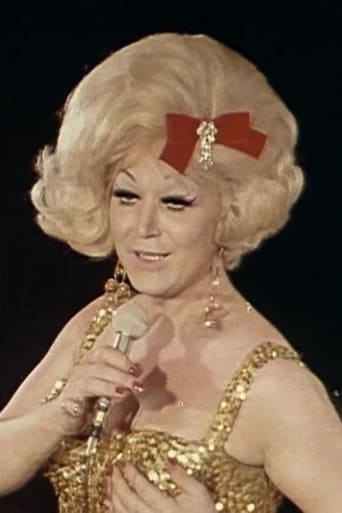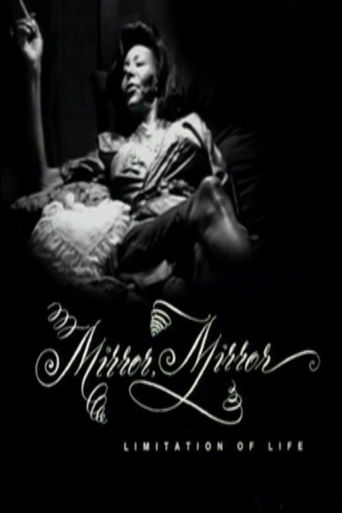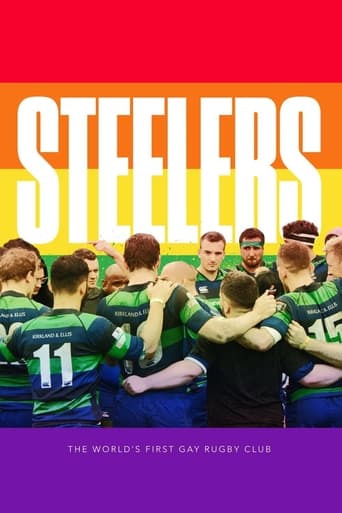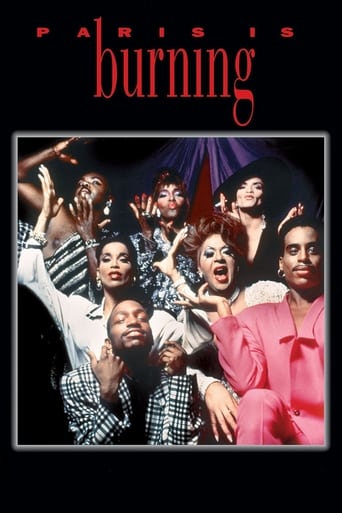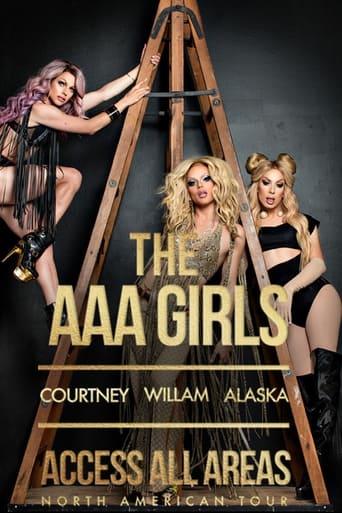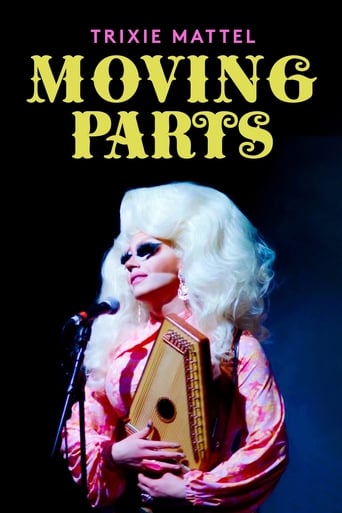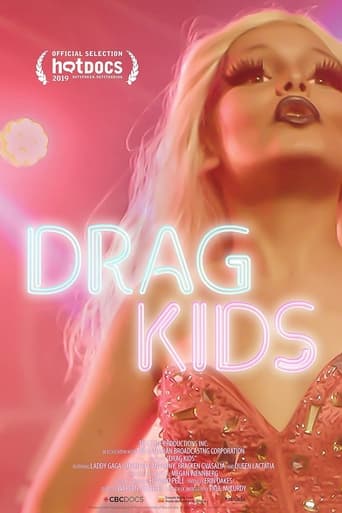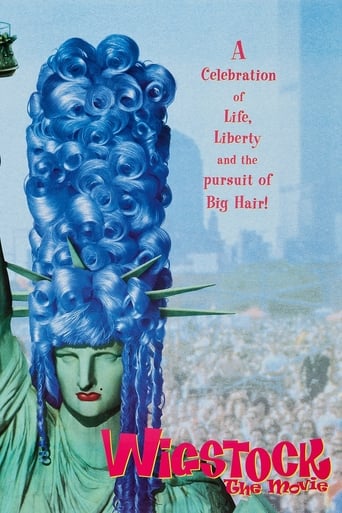The Queen (1968)
In 1967, New York City is host to the Miss All-American Camp Beauty Pageant. This documentary takes a look behind the scenes, transporting the viewer into rehearsals and dressing rooms as the drag queen subculture prepares for this big national beauty contest. Jack/Sabrina is the mistress of ceremonies, and their protégé, Miss Harlow, is in the competition. But, as the pageant approaches, the glamorous contestants veer from camaraderie to tension.
Watch Trailer
Cast


Similar titles
Reviews
i must have seen a different film!!
I like movies that are aware of what they are selling... without [any] greater aspirations than to make people laugh and that's it.
Simple and well acted, it has tension enough to knot the stomach.
It's entirely possible that sending the audience out feeling lousy was intentional
Queen is a documentary detailing the events that happened behind the scenes of the 1967 Miss Gay America pageant in New York. Personally, I have only watched this film because it was a recommended when I had watched another famous LGBT documentary (Paris is Burning). Their actually pretty similar in content. Though I found Queen less connected with its subject. Nevertheless, Queen is a great example of the Cinema Verite tradition of the time. No sensationalism here. We see the contestant to their barest bare to their lushest maquillage as they talk of different things such as sex reassignment surgery, discrimination or the damn nasty bitterness of defeat. Only their personally lifting the mood of each scene. Making it an even more interesting time piece of a pre-AIDS/Stonewall LGBT scene wherein being out means scorn and discrimination. Interestingly, it also proves that the clothes had changed but the attitude and flair remains pretty much the same. [3.5/5]
I got a rare chance to catch this film projected on 35mm film back in 1994 at the Castro Theatre in San Francisco. It was totally cool to see a reality slice of the NY underground drag world at that time, esp. before the Stonewall liberation riots. I highly recommend this film to anyone that is interested in underground cinema from the 60s thru the 80s. Its different than 'Paris is Burning' in that this film almost seems as though they decided to just put the footage together after it was shot and make a film. The footage is rough and shaky and most of the film is hand held. I think that this quality gives the film much more credibility as a true account of the times rather than one that was geared just to entertain the curious public. ANDY WARHOL makes a cameo appearance in one of the shots in the film as the camera pans onto the audience sitting down, THERE HE IS, sitting in a chair in the audience. Its very quick, so keep an eye out for his platinum wig!!! HIGHLY RECOMMENDED.
1968's "The Queen" is a slight but fascinating time capsule, probably one of, if not THE earliest in-depth glimpse at the drag queen subculture in its final days as a solidly underground phenomenon. This doesn't concentrate on professional female impersonators, who'd been a legitimate part of show biz for decades, but specifically on effeminate men whose cross-dressing was an active part of their social lives in the homosexual milieu, which as a North American whole was still trying to struggle along beneath the radar of vice laws. Taking place a couple years before the Stonewall riots, which engineered the gay rights movement, this documentary is strikingly non-politicized and thus warts-and-all candid, taking the viewer into this insular world of long ago in a manner that's never preachy and rarely poignant, but shows an amused affection for its marginalized subjects, rather than leering at them in the "Mondo" shock value style that was then the exploitive norm for this kind of subject matter.That isn't to say that "The Queen" lacks a sleazy expo-zay appeal, just by the nature of the annual event it covers. It's the way downscale, transvestite answer to the 1967 Miss America Pageant. More of a glamour than a beauty contest, elected "empresses" from cities nationwide flock into New York, to vie for the title of that year's national reigning drag queen. Out of drag, they come in all shapes -- spindly teenagers and gawky nerds and big hairy trucker types and fat balding guys nearing middle age. Followed around with hand held 16mm cameras, the contestants get to know one another in the dilapidated hotel where they're billeted, swapping remarkably upbeat life stories and opinions on gender issues in the spirit of outcast camaraderie. One notable exception, focused on immediately as resentments begin to simmer, is the aloof Philadelphia representative, Richard, alias Miss Harlow, a very pretty blond lad whose rise to drag circuit stardom has been a little too rapid for most everyone's taste. His cause isn't helped by his sulky attitude.In preparation, they're choreographed and groomed and grilled on rules of stage conduct, by a pair of established drag queen organizers who, with New Yawky know-it-all-ness, are as fiercely demanding as drill sergeants. Here's where the film's period is especially evident, inviting comparisons to later drag show docs like 1995's "Wigstock", with its wild and free-wheeling variety of bizarre drag performances. No such freedom of expression thirty years earlier, as the conventions of these fringe dwellers' burlesque are rigidly enforced, with the unquestioned conformity of regional folk dancing. In fact, it's written that the legendary Divine helped break this mass creative stranglehold, after violent opposition early in his stage career.It's the transformation process on the big night that's really captivating, as the boys pluck away body hair, pile on make-up, pad and corset their figures, and fret over wigs and gowns. As we watch, this rather goofy looking bunch not only shed their maleness, but their individualism, as they turn into a small army of statuesque glamour girls. The look, an exaggerated version of the Ursula Andriss 60s Greek goddess in a towering bouffant and streams of diaphanous chiffon, is a fun one but utterly uniform, and one all but loses track of the different players. The pageant itself is an embarrassing disaster, clearly sucked dry of any spontaneity in the planning stages, in a grubby old theatre with a bored society crowd in trendy attendance, and a catatonic Andy Warhol chairing the panel of judges. The competitors themselves are merely paraded about, not even allowed to lip-sync girl songs like they'd do in the clubs back home -- they're simply gaudy mannequins. Entertainment, such as it is, is provided by talentless local transies doing drunken versions of dreary old show tunes, while a tired strip joint orchestra tries valiantly to match their ever-changing tempos and keys. The night is a catastrophe in the making.Tempers start to flare when the five finalists are announced, and some of those left backstage go ballistic with unconcealed envy. This shameless poor sportsmanship is carried onto the stage, when the fourth runner-up, a certain Miss Crystal, storms off in a huff. The crown, of course, goes to the undeniably prettiest, the reviled Miss Harlow, to politely thunderous applause, and in rivers of mascara, he weeps over this greatest moment of his life. The magic is short-lived, though, when who should be waiting backstage but Miss Crystal, who tears into Harlow, mocking his shoddy make-up and ugly dress that wasn't even clean, and insisting Harlow was not the prettiest -- Crystal was! The organizers spring to Harlow's defence, diverting Crystal's rage, with accusations that the whole pageant was rigged and they'll be sorry. As Harlow sobs, the threats and insults fly back and forth, with increasing shrillness, until the theatre management shows up and unceremoniously tosses everyone out. So much for that year's pinnacle of appreciation for the American cross-dressing arts.As cheerfully tasteless a finale this is, celebrating bitchy stereotypes while pulling out on a note of cheap hilarity, it's refreshingly free of judgment pro or con, making for the best sort of historical artefact, superficial in its mood and thus unbiased as an accurate documentation for future cultural study. If, on EBay or wherever, you can track down "The Queen", enjoy it in good conscience --your neighbourhood drag queen certainly would.
You can't get much stranger than this 1967 documentary that takes a look at a New York drag show where contestants compete both on and off stage for the crown. Running just over an hour and filmed with hand-held cameras, THE QUEEN is tacky, vulgar, distasteful, embarrassing, and often quite funny as it peeks behind the scenes of the event. But the film is more than accidental camp humor--it really is a historical artifact.Very few gays or lesbians were "out" before the 1969 Stonewall riots, and the contestants shown here are among the few... and not only were they out, they were out as drag queens, doing the unthinkable by stomping across the stage in evening gowns, heels, and eyeliner. This is not the sort of drag that has entered popular mainstream entertainment via such performers as RuPaul: this is in-your-face, I-am-what-am, I-don't-care DRAG as performed by skinny teenagers with bad skin, fat guys with bald spots, and tough men with hairy chests and tattoos. This is big hair, big make up, and big attitude, and it is all the more unnerving because it isn't just a character that the contestants put on and off. This is the reality that sparked a thousand stereotypes.Much of the film's entertainment value is accidental. There is nothing funnier, or more painfully embarrassing, than a chunky drag queen in out-of-style clothes. THE QUEEN is really too superficial to be called significant, too tacky-funny to be taken very seriously--and yet, it does make you wonder about the lives of those before the Stonewall Riots, the Gay Liberation Movement, the Anita Bryant hysteria, the advent of AIDS. And therein lies its power: it is a time machine, badly filmed, yes, superficial, yes, but a time machine just the same, capable of giving us a glimpse of what it was like to be gay, a drag queen, and in New York in the mid-1960s. It won't be to every one's taste, but it is worth a look if you can find a copy.Gary F. Taylor, aka GFT, Amazon Reviewer

